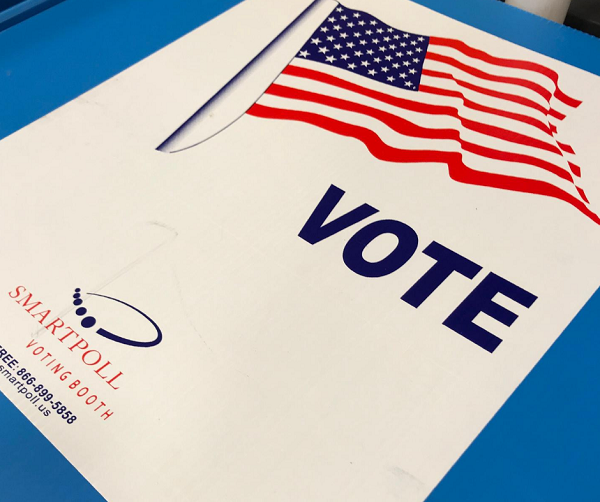Press Release
LDF Files Lawsuit Against the State of Florida Over Suppressive Voting Law
Related Issues

Today, the NAACP Legal Defense and Educational Fund, Inc. (LDF) filed a federal lawsuit against Secretary of State Laurel M. Lee challenging Florida’s new law that greatly obstructs voting access.
The lawsuit argues that SB 90 creates barriers and burdens that impact all Florida voters and disproportionately impacts the ability of Black voters, Latino voters, and voters with disabilities to cast their ballot. This restrictive bill violates Section 2 of the Voting Rights Act, the First and Fourteenth Amendments to the United States Constitution, and Title II of the Americans with Disabilities Act.
LDF, co-counsel Covington & Burling LLP, and the Law Offices of Nellie L. King filed the lawsuit on behalf of the Florida NAACP, Disability Rights Florida, and Common Cause. Florida joins over twenty other states, most notably Georgia, in legislative efforts to substantially restrict voting access.
“SB 90 represents a direct and swift backlash to Black voters’ historic turnout during the 2020 election season,” said Zachery Morris, LDF Assistant Counsel. “The law’s suppressive and discriminatory provisions make it clear that the Florida Legislature’s goal is to erect additional hurdles to inhibit Florida voters, especially disabled voters, Black voters, and Latino voters, from accessing the ballot box. These efforts are shameful and they are not new. We cannot allow elected officials to suppress votes under the guise of election integrity.”
“Though this law was rushed to a vote under the pretense of election integrity, even the proponents of SB 90 have been unable to point to evidence of voter fraud in the 2020 election in Florida that could justify the law’s limitations on voting rights,” said Robert Fram of Covington & Burling.
Tony DePalma, Director of Public Policy at Disability Rights Florida, said, “It is highly unfortunate that Florida is moving to broadly restrict elections access less than a year after it agreed to implement statewide accessible vote-by-mail balloting options for voters with visual and other print impairments — an obligation that has remained unfulfilled in state law for nearly two decades. Election cycle after election cycle, more is learned, understood, and corroborated about the range of barriers that can and do impede the voting interests and opportunities of those with disabilities in the state and nationally. To engage in a blanket assault on elections accessibility against that backdrop is a drastic step in the wrong direction for Florida.”
“The passage of SB 90 marks a return of Jim Crow,” said Adora Obi Nweze, President of the Florida NAACP. “These voting restrictions are part of a national movement to create barriers for Black and Brown voters and an effort to deny ready access to the ballot box. In the midst of a pandemic, 11 million Florida voters cast ballots including a significant number of Black voters, with more than 500,000 voting by mail. Our vote is our voice. We will not let this act silence us.”
“SB 90 creates barriers between Floridians and their right to vote. By signing this bill, Gov. DeSantis added Florida to the shameful list of states that are moving backward on voting access, rather than forward,” said Sylvia Albert, Director of Voting and Elections for Common Cause. “Every voter in America has the right to have their voice heard, by casting and having their ballot counted — that’s how our government ‘by the people’ is supposed to work. Florida voters should have the freedom to cast their ballots in the same ways they have voted in past election cycles.”
Despite the proven and celebrated integrity of the 2020 elections, Florida officials are using the myth of voter fraud to pass sweeping restrictions on voting. These actions follow historic turnout in Florida during the primary and general elections, particularly among Black voters. SB 90 is the latest law advanced by a legislature and governor who are clearly committed to prioritizing voting restrictions over adhering to public calls for expanding voting access.
The lawsuit challenges multiple provisions in SB 90, including:
- New identification requirements for voters requesting vote-by-mail (“VBM”) ballots.
- Restrictions and new requirements for standing VBM applications.
- Limitations on where, when, and how drop boxes can be used.
- Limitations on third-party VBM ballot return.
- A vague and overbroad prohibition on conduct near polling places, including likely criminalizing offering free food, water, and other relief to Florida voters waiting in long lines.
Read the lawsuit challenging SB 90 here.
###
Founded in 1940, the NAACP Legal Defense and Educational Fund, Inc. (LDF) is the nation’s first civil and human rights law organization. LDF has been completely separate from the National Association for the Advancement of Colored People (NAACP) since 1957—although LDF was originally founded by the NAACP and shares its commitment to equal rights. LDF’s Thurgood Marshall Institute is a multi-disciplinary and collaborative hub within LDF that launches targeted campaigns and undertakes innovative research to shape the civil rights narrative. In media attributions, please refer to us as the NAACP Legal Defense Fund or LDF.